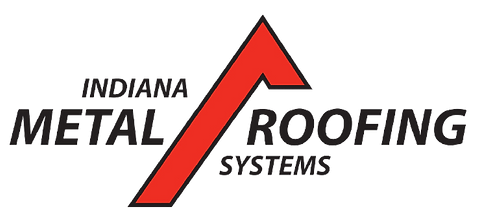The Truth About Metal Roofs and Mold: A Comprehensive Guide
- Joseph Justice
- Nov 21, 2024
- 3 min read
Updated: Dec 9, 2024
Metal roofing has grown in popularity due to its durability, energy efficiency, and aesthetic appeal. Homeowners often choose metal roofs for their longevity, but one question that arises is whether mold can grow on metal roofs. At Indiana Metal Roofing Systems, we aim to dispel the myths surrounding mold on metal roofs and provide guidance on how to prevent it.

Condensation and Mold Formation
One of the primary causes of mold growth on any roof is condensation. This occurs when warm air, filled with moisture, meets a cool surface and turns into water droplets. Over time, these droplets can contribute to mold formation if not properly managed. However, when it comes to metal roofs, there are several advantages.
Why Metal Roofs Are Resistant to Mold
Metal roofs stand out for their resistance to mold, as they do not absorb moisture like other roofing materials. This moisture resistance prevents metal from becoming a breeding ground for mold. Although metal roofs are naturally mold-resistant, proper installation and regular maintenance are essential to maintaining this benefit.
Proper Ventilation Prevents Mold
Ensuring proper ventilation is a critical aspect of mold prevention for any roof, including metal. Poor ventilation can trap moisture inside the attic or ceiling, leading to mold growth. Here are some methods to enhance ventilation:
Attic Vents: These allow airflow, preventing moisture buildup. Proper ventilation ensures that humid air doesn’t stagnate, reducing the risk of mold.
Moisture Barriers: Installing a moisture barrier between your metal roof and the interior of your home can reduce condensation and mold formation.
Additional Mold Prevention Tips
Moisture-Resistant Underlay
A moisture-resistant underlay provides an extra layer of protection against moisture accumulation. Materials like polypropylene or felt act as a barrier between the roof and the home, preventing any potential water damage and ensuring that your roof remains mold-free.
Regular Inspections
Performing regular inspections is essential to detect any early signs of moisture or ventilation issues. Early detection can prevent more severe problems down the road. Engaging a professional to inspect your roof ensures that any potential issues are addressed promptly.
Indiana Metal Roofing Systems: Ensuring Mold-Free Roofs
At Indiana Metal Roofing Systems, we focus on delivering top-notch metal roofing solutions to our customers in Fort Wayne, IN. We are committed to ensuring our roofs stay mold-free and stand the test of time through proper installation, quality materials, and maintenance. Our clients benefit from our:
#1 Quality of craftsmanship
Use of the best materials in the industry
Dedication to customer satisfaction
No high-pressure sales tactics
Industry’s best financing options
Fair pricing
We hold an A+ BBB rating and a 5-star Google rating, making us a trusted name in roofing. If you're considering a metal roof installation, you can count on our expertise to ensure your roof remains mold-resistant for years to come.
Frequently Asked Questions (FAQs)
1. Can metal roofs develop mold? Metal roofs are highly resistant to mold because they do not absorb moisture. However, condensation from poor ventilation can lead to mold growth beneath the roof.
2. How can I prevent mold under my metal roof? Ensure proper ventilation in your attic or ceiling area and consider installing moisture-resistant underlays and barriers to reduce condensation.
3. What causes condensation under a metal roof? Condensation occurs when warm, moist air meets the cooler surface of the metal roof. Proper insulation and ventilation help to prevent this issue.
4. Will a moisture barrier prevent mold? Yes, installing a moisture barrier will reduce the chances of mold forming by creating a barrier between the roof and the interior of the home.
5. Is metal roofing worth the investment despite the risk of condensation? Yes, metal roofing is a durable and energy-efficient choice. By addressing ventilation and moisture control, you can enjoy the benefits of metal roofs without the risk of mold.
Conclusion
Metal roofs are inherently resistant to mold due to their non-absorbent nature and efficient water runoff capabilities. However, proper installation, ventilation, and moisture control are essential in maintaining a mold-free environment. By taking preventive measures and scheduling regular inspections, you can enjoy the longevity and durability that metal roofs offer without worrying about mold.
For a detailed guide on other roofing-related issues, you can explore this blog about roof insurance claims.


Comments